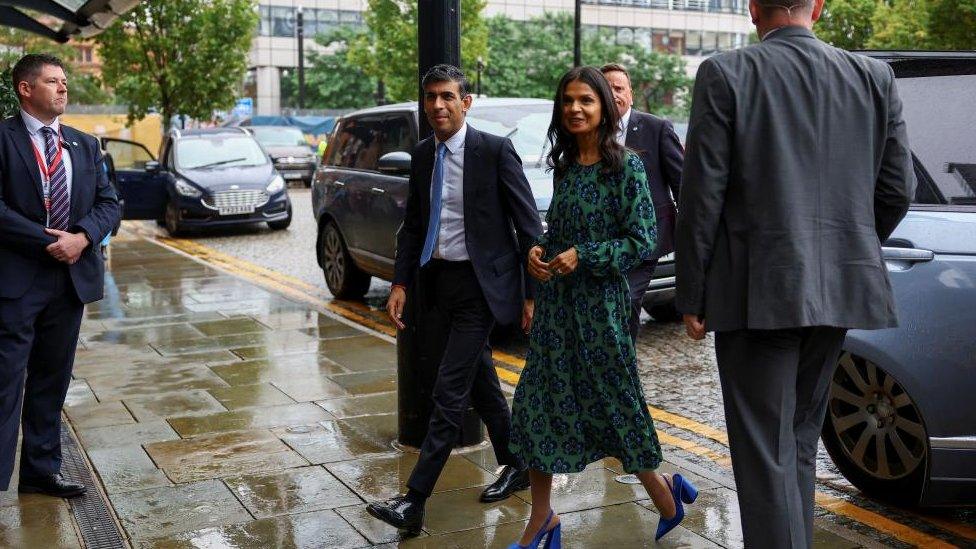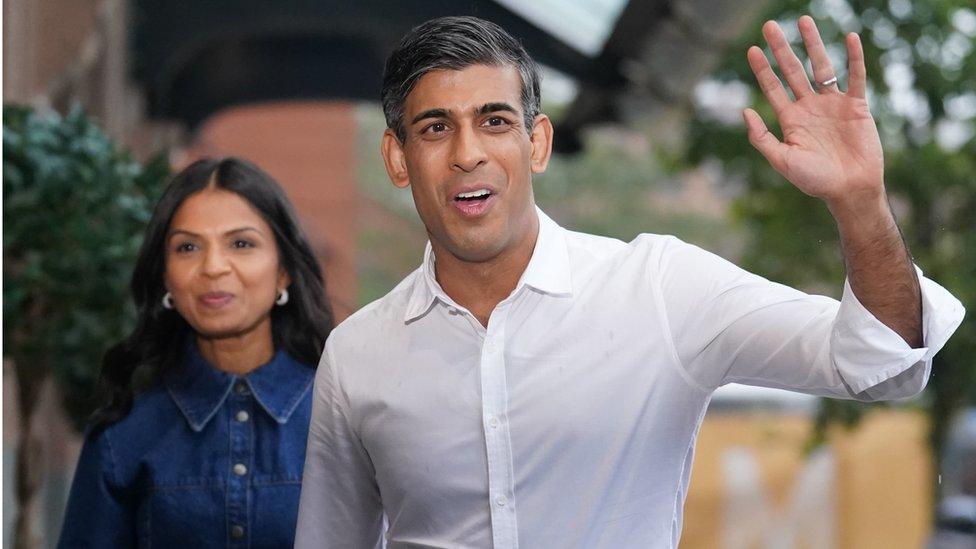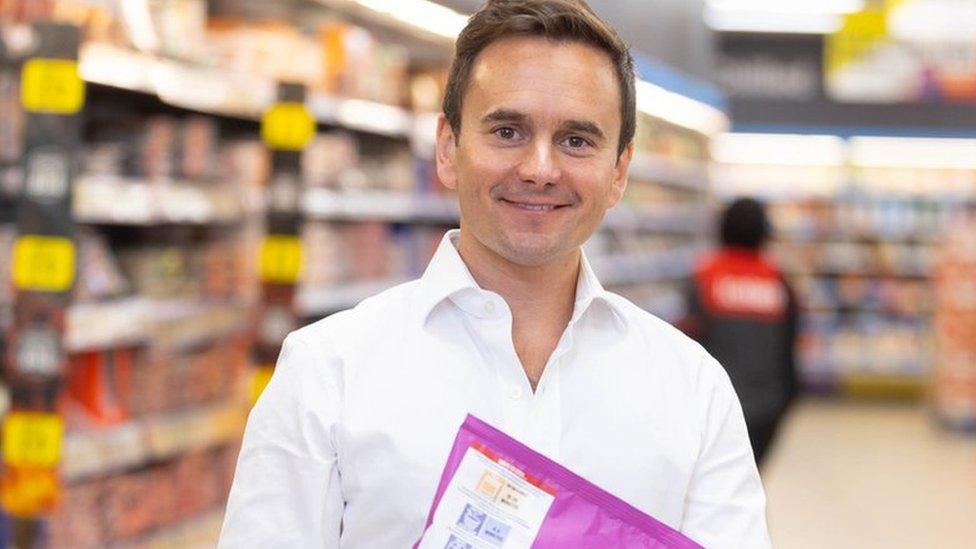Rishi Sunak refuses to commit to pre-election tax cuts
- Published
- comments
Sunak: Cutting inflation our 'most important priority'
Rishi Sunak has told the BBC he wants to cut taxes - but declined to say whether he would before the next general election.
His comments came after cabinet minister Michael Gove told Sky News he wanted taxes cut before an election.
Instead, Mr Sunak said that his priority was curbing inflation and easing living costs.
Tax and HS2 are causing unrest in the party as members gather in Manchester for their annual conference.
Tax levels in the UK are at their highest since records began 70 years ago and are unlikely to come down soon, a leading think tank, the Institute for Fiscal Studies, said this week.
Former Prime Minister Liz Truss and her allies are among Tory MPs who have called for tax cuts. But Chancellor Jeremy Hunt - who will set out his economic plans in his Autumn Statement in November - said last week that tax cuts were "virtually impossible" at present.
In an interview with the BBC's Sunday with Laura Kuenssberg, Mr Sunak was asked three times whether he would commit to lowering taxes before the next election, which is expected next year.
Mr Sunak - at his first conference as party leader - said that as a Conservative, he wanted to cut taxes, but gave no detail on when he would do so.
The prime minister said he thought halving inflation - the rate at which prices are rising - by the end of this year was the "best tax cut" he could deliver.
Inflation was 10.7% in the three-month period between October and December 2022, which makes Mr Sunak's target figure 5.3%.
In August, the inflation rate was 6.7%.
Curbing inflation, Mr Sunak said, was his biggest priority.
"Change may be difficult, but I believe the country wants change and I'm going to do things differently to bring about that change," he said.
Speaking later at a fringe event at the Tory Party conference, Mr Gove echoed the prime minister, saying taxes could only be cut when inflation had been "tackled".
The government has limited tools to reduce inflation. The Bank of England says raising interest rates, which it controls independently, is the best way to make sure inflation comes down.
On the eve of the conference, the boss of Iceland supermarkets, Richard Walker, announced he was quitting the Conservative Party and accused the Tories of being "out of touch".
But facing questions about discontent within his party over tax, green policies and the future of the HS2 rail line, Mr Sunak rejected claims the Tories were drifting away from voters. His party trails Labour in the polls.
The prime minister told Laura Kuenssberg that Mr Walker had talked about net zero and prioritising working people, adding: "Change may be uncomfortable for people. People may be critical of it, but I believe in doing the right thing for the country.
"I'm not going to shy away from that."
Net zero means no longer adding to the total amount of greenhouse gases in the atmosphere.

Rishi Sunak and his wife Akshata Murty in Manchester on Sunday
Ahead of his party's four-day conference, Mr Sunak announced £1.1bn of cash for towns the government says have been "overlooked".
He declined to comment on speculation about the government potentially scrapping the Birmingham-to-Manchester leg of HS2, following suggestions the cost of the project could exceed £100bn.
The first leg of HS2, from London to Birmingham, is already being built.
Labour and some Tory MPs have said scaling back HS2 would be a mistake, with two former Conservative prime ministers - Theresa May and Boris Johnson - among them.
Sunak tries to prove bleak Tory predictions wrong
Until recently, Mr Sunak had played it pretty safe since becoming Conservative leader and prime minister a year ago this month.
He took over from Ms Truss in October last year without one vote being cast by Tory members in a leadership content, or voters in a general election.
In the interview, Kuenssberg asked Mr Sunak if he was relaxed about holding office without anyone voting for the changes he had made.
"Yes, because I'm doing what I believe is right," he said.
Mr Sunak appears be leaning into controversial decisions.
Last month, he watered down green policies designed to reduce planet-warming carbon emissions to net zero by 2050, and in recent days has touted measures to help motorists.
Mr Sunak denied his changes to green polices were made for short-term political gain.
He said the UK government had "an obligation" to meet targets to reduce carbon emissions, but added: "We can do so in a more proportionate and pragmatic way."
Some opinion polls have showed a modest Conservative recovery, but the party still lags far behind Labour.
"The mood among Conservative MPs is really bleak," one Conservative backbencher who had reluctantly travelled up to Manchester for their party conference told the BBC. "Most of us can see the polls and realise we are doomed."
It was clear from this morning's interview that Mr Sunak does not agree, as he repeatedly talked himself up as a "change" prime minister.
Expect more of that at his party's conference this week: attempts to draw clear dividing lines with Labour and spell out more of what Mr Sunak would do with a full term as prime minister.
Each of those new policies is also an attempt to prove wrong fatalistic Conservative MPs who think the election result is already a done deal.
Related topics
- Published29 September 2023

- Published1 October 2023

- Published30 September 2023
